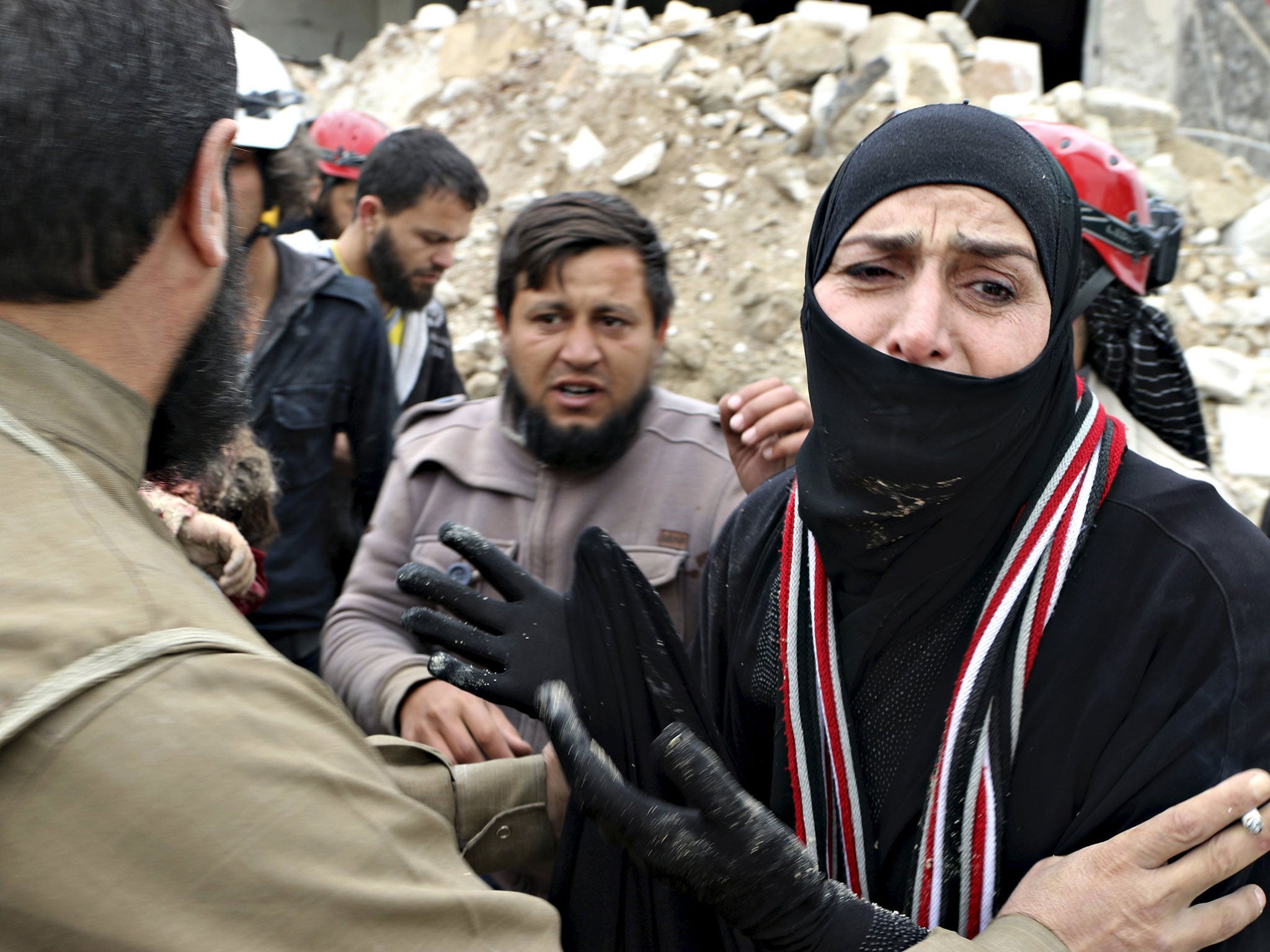Syria conflict: Listen to Russia to help resolve crisis, urges UN envoy
Russia has influence on Damascus, and it’s very important that they get involved, Staffan de Mistura said

The United Nations’ special peace envoy to Syria said it was time for the world to listen more closely to Russia on the four-year-long crisis that has cost more than 210,000 lives and fuelled an unprecedented growth of Islamist extremism that has spread across the Middle East.
In remarks that will concern Western governments, Staffan de Mistura, who was ordered last week by the UN Secretary-General Ban Ki-moon to relaunch the failed peace process in Syria, told The Independent: “Russia has influence on Damascus, and it’s very important that they get involved.”
He added: “The two countries’ relationship goes back to the time when Bashar al-Assad’s father was in power. Therefore the Russians do have a knowledge of the system and the way they think.”
In the same interview he admitted that he had miscalculated the impact of Isis on Syria. He called the jihadist group a “monster”, not least because of the humanitarian crisis it has provoked in Yarmouk, the Palestinian refugee camp south of Damascus that it seized earlier this month. When Isis declared a “caliphate” that included a large swathe of Syria last summer, he had hoped this would act as a “wake-up call” to a country that had reached political stalemate. “I thought that maybe this outside threat might produce some common understanding between those who were unable to turn around the conflict,” he said, adding: “I was wrong.”
Mr De Mistura has faced criticism since the beginning of this year after the failure of his approach in Aleppo, the northern Syrian city that has been reduced to rubble by more than three years of fierce fighting.
The Swedish-Italian diplomat, who was appointed to the post last July, initially decided to make his mark by proposing a “freeze” of fighting in the city. Shelling by Syrian rebels of a government-held area in the north of the city on Saturday, and a retaliatory government air attack on a rebel-held neighbourhood yesterday – killing more than 30 people between them – are just the latest sign that his ambitious plan is in tatters. Last week Mr Ban urged him to focus on relaunching the political process which collapsed last summer.
Russia’s role in Syria is regarded with suspicion by the West because of its previously unstinting support for the regime of Bashar al-Assad, a key Moscow ally in the region. Since 2011 Russia, along with China, has used its veto on three occasions to prevent the UN Security Council from taking punitive actions against Mr Assad.
Mr De Mistura stressed that Russia was only a small part of the wider solution he is seeking, but said that in the current situation he believes that “anything” capable of breaking the stalemate in Syria should be tried, “even if imperfect or partial”.
He was invited to join a second round of Russian-brokered talks on Syria in Moscow this month – a meeting viewed with scepticism by Western diplomats because Russia’s support for Mr Assad meant that key members of the remnants of Syria’s non-jihadist opposition refused to attend. Mr De Mistura declared, “It’s a very good initiative”, but declined the invitation, and told The Independent: “I felt that being on the outside was more useful to all involved.”
It is clear that he was wary of provoking more anger than he has already by showing either too much or too little support for any player in the Syria crisis. In February he caused anger by announcing in Vienna that Mr Assad himself should be involved in a diplomatic solution – something that the West, and neighbouring Turkey, insists cannot be allowed – on the same day that the Syrian regime dropped barrel bombs on rebel-held civilian areas in the town of Douma, near Damascus.
Mr De Mistura said yesterday that his comments had been misinterpreted. “When I was asked about Assad, I was thinking about the reduction of violence in Aleppo. Since Assad was in charge of the most egregious sort of violence there, he was unavoidably someone who should be part of the solution in stopping the bombing,” he said. “But I concur that was not the perception. I have said repeatedly since that [Mr Assad’s role in Syria’s future] is not in my hands – it is up to the Syrian people to decide whether or not he should be part of the political solution.”
He said he had no regrets about his attempt at a truce in Aleppo. “The city was close to collapse, and it was a way of drawing the attention of the world to that. At least it made the government and the opposition face a choice of reducing the violence. It hasn’t worked so far, I agree. My job is not to be disappointed – simply to try again.”
Join our commenting forum
Join thought-provoking conversations, follow other Independent readers and see their replies
Comments
Bookmark popover
Removed from bookmarks